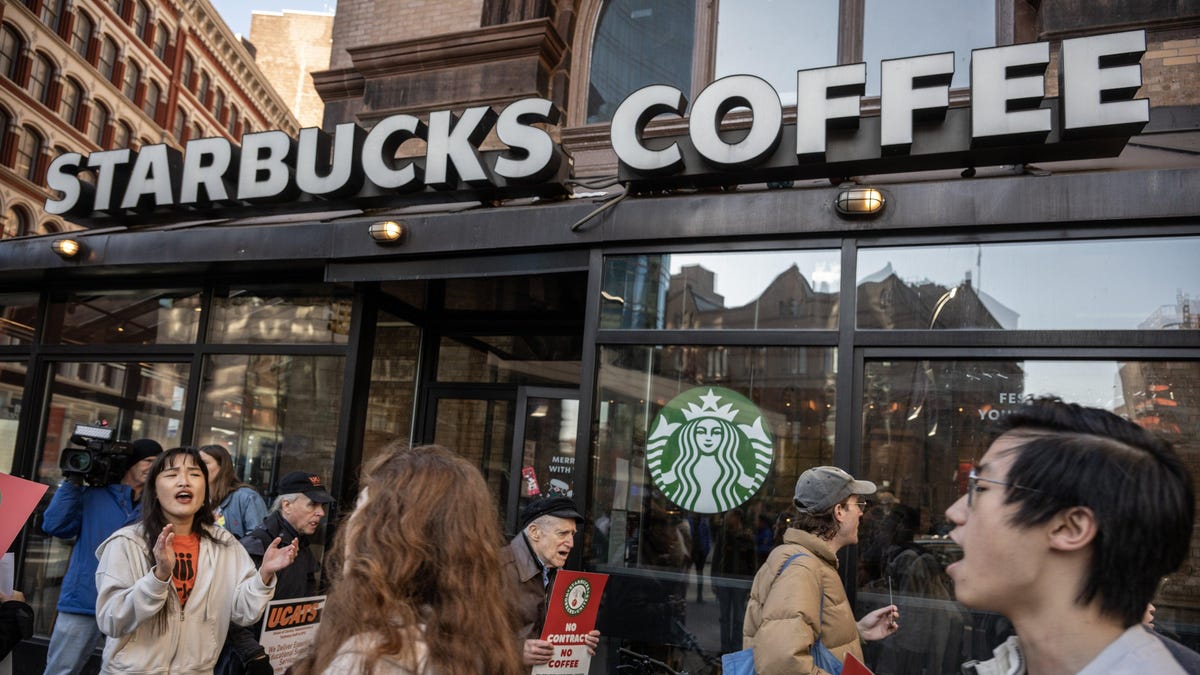
A consumer protection group alleged Starbucks’ mobile app traps users in a vicious cycle of beverage buying in a December complaint to Washington’s Attorney General. The coffee chain’s mobile app allegedly uses “dark patterns” to make low funds on a Starbucks Card unusable, forcing you to add $10 or lose that money altogether.
“The Starbucks Payment Platform involves unfair and deceptive digital dark patterns that effectively trap its customers into prepaying for the company’s services,” said the Washington Consumer Protection Coalition in a letter dated Dec. 19. “The Attorney General should take immediate action to put a stop to Starbucks’ unfair and deceptive conduct and make Washington’s consumers whole for the harms it has caused them.”
Advertisement
The Starbucks app handled the payments of over 31 million users in 2021; that’s six million more users than Google Pay. The coffee chain is being accused of encouraging users to add funds to their Starbucks Cards in large increments, and then putting measures in place to ensure low balances can’t be used up. Last year, customers loaded roughly $15 billion onto Starbucks Cards, and management considers these digital payments key to its success, according to the complaint. Washington’s Attorney General is now being asked to look into whether these methods are deceptive.
Advertisement
Starbucks suggests users upload $25 at a time to their Starbucks Card, but the chain’s cheapest drinks hover around $3 in New York, though it could be different in your region. If your balance is less than $3, or whatever the cheapest drink in your area is, then your funds are essentially frozen in the app. Starbucks’ app doesn’t allow you to combine these funds with other payment methods, or even just leave it as a tip. The Coalition says it’s nearly impossible to get your Starbucks Card’s balance to zero via the mobile app, so the only option is to add more funds.
Advertisement
A Starbucks spokesperson told Gizmodo that users can go into a physical store and ask a barista to use the Starbucks Card from the app along with another payment method to zero their balance when making a purchase. When Gizmodo asked why that can’t be done on the mobile app itself, which it claims to be effortlessly convenient, the spokesperson had no comment.
“Starbucks is committed to working with the State of Washington to ensure it remains in compliance with all state laws and regulations,” said Starbucks in an official statement.
Advertisement
Washington’s Attorney General did not immediately respond to Gizmodo’s request for comment.
The consumer advocate describes these measures as dark patterns: ways software can subtly trick users into doing things they didn’t mean to – such as spending extra money or sharing information. Washington’s Attorney General recently forced Google to pay $40 million for dark patterns around deceptive location tracking, where Google collected location data on users without their knowledge. The Washington Consumer Protection Coalition claims this is another case of dark pattern deception and calls out the practice of “the capacity to deceive substantial portions of the public,” as illegal.
Advertisement
The Federal Trade Commission highlighted common dark patterns in 2022, including subscriptions that are difficult to cancel, buried junk fees, and tricking consumers into sharing data. “Our report shows how more and more companies are using digital dark patterns to trick people into buying products and giving away their personal information,” said Samuel Levine, Director of the FTC’s Bureau of Consumer Protection at the time of the report.
Services Marketplace – Listings, Bookings & Reviews